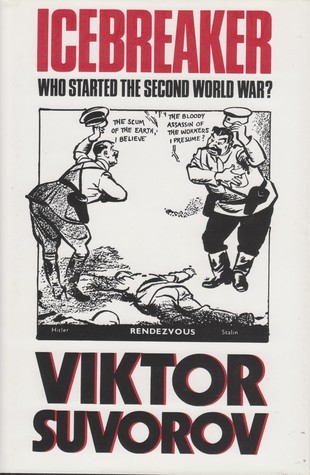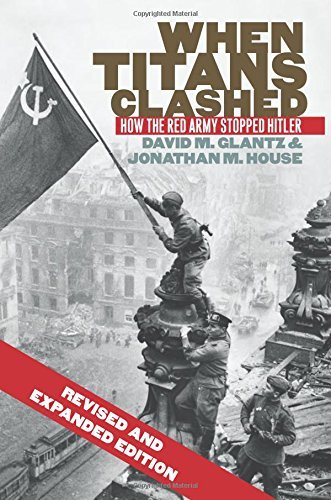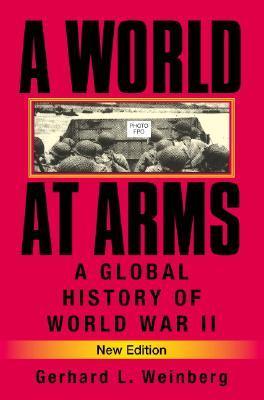
Icebreaker: Who Started the Second World War?
Book Description
What if everything you thought you knew about World War II turned out to be a carefully crafted lie? Viktor Suvorov unravels a thrilling mystery that challenges the very foundations of modern history. With relentless tension and eye-opening revelations, this gripping exploration delves into the shadows of espionage and deception, revealing who truly ignited the flames of global conflict. As secrets surface and alliances shatter, the stakes soar higher than ever. Can the past ever be rewritten, or will the truth remain buried beneath a mountain of myths? Discover the origins of chaos in a world where nothing is as it seems.
Quick Book Summary
"Icebreaker: Who Started the Second World War?" by Viktor Suvorov presents a provocative reinterpretation of the origins of World War II. Suvorov, a former Soviet military intelligence officer, argues that the common understanding of the war—often assigning principal blame to Nazi Germany—is incomplete or intentionally misleading. He posits that Joseph Stalin and the Soviet Union were not only prepared for an offensive against Europe but that Stalin’s secret strategy was to let Germany and the Western powers weaken each other before swooping in for domination. Using military records, intelligence documents, and logic, Suvorov suggests that Soviet policies and mobilization were at the heart of the actions that unleashed global conflict. His narrative challenges mainstream historiography, advocating for a deeper examination of Soviet intentions and the complex web of pre-war alliances and betrayals.
Summary of Key Ideas
Table of Contents
Stalin’s Strategic Ambitions and Military Buildup
The book begins by shattering the widely accepted narrative that Adolf Hitler and Germany alone orchestrated the outbreak of World War II. Suvorov builds his thesis on the idea that Stalin’s Soviet Union had an aggressive grand strategy—actively preparing to launch a surprise attack on Europe. This military buildup, hidden behind the façade of defensive rhetoric, included mass mobilization, war planning, and the development of offensive weaponry specifically tailored for rapid, expansive campaigns across the continent.
Soviet-German Relations and the Molotov-Ribbentrop Pact
Suvorov highlights the Molotov-Ribbentrop Pact of 1939 as emblematic of the Soviet Union’s duplicitous foreign policy. He argues that while the world was fixated on Nazi aggression, Stalin used non-aggression agreements to buy time, seize eastern territories, and build up the Red Army along the western border. This secret protocol, dividing Eastern Europe into Soviet and German spheres, demonstrates Stalin’s readiness to manipulate diplomacy to his advantage, setting the stage for further conflict.
The Theory of Preventive War and Espionage
A central theme is the interplay of espionage and intelligence in shaping pre-war alliances and strategies. Suvorov contends that Stalin’s intelligence apparatus was integral to the Soviet plan, feeding misinformation and exploiting political divisions among Western countries. The book maintains that Stalin hoped to orchestrate a scenario where Germany and the Western Allies exhausted each other in battle, leaving the Soviet Union in a prime position to intervene and dominate Europe with minimal resistance.
Reinterpreting the Outbreak of World War II
Challenging the mainstream narrative, Suvorov scrutinizes the operational and logistical aspects of the Red Army on the eve of the German invasion. He notes troop deployments, offensive doctrine in military manuals, and the timing of Soviet mobilization, arguing these reveal an intention to attack rather than defend. The catastrophic surprise suffered by the Soviets in 1941, according to Suvorov, was not due to unpreparedness but rather because Stalin’s planned timetable for invasion was preempted by Hitler’s Operation Barbarossa.
Ultimately, Suvorov’s work forces readers to reconsider established views of World War II’s origins. He dissects the long-standing myths about the "innocence" of Soviet motives, presents a detailed analysis of evidence from the period, and questions the traditional assignment of guilt. “Icebreaker” invites a re-examination of the roles played by all major powers and exposes how secrecy, strategy, and manipulation—at the highest levels—contributed to unleashing the deadliest conflict in human history.
Download This Summary
Get a free PDF of this summary instantly — no email required.





